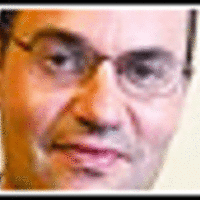What's the future of energy economics?
Loading...
Now that I've turned 46, young economists ask me "big think" questions about where I think the field of energy economics should go. Since nobody reads this blog, I can confidently sketch an answer without causing any trouble.
Everybody knows that we are now accessing better micro data. Read Ito's paper or my paper with Dora to get a sense of the great dependent variables that researchers are accessing. The electric utilities have great data by account and by year/month and soon by account/year/month/day/hour on electricity expenditure and consumption.
The key question is what can researchers do to explain and predict the cross-sectional and time series patterns we see in household and firm level electricity consumption.
Here is my "favorites list":
1. Randomized experiments in which the researcher manipulates information and or prices to change the household's behavior. We will see dozens of these papers soon. These papers will be classic "treatment effect" papers as they will recover a short run average treatment effect. If researchers have access to any household attributes and if they have large enough sample sizes, they will stratify the data to test for heterogeneous treatment effects with respect to attributes of either the structure or the decision maker.
2. As time goes by, researchers will test for the persistence of these effects.
For those lucky researchers who find an impact of their "treatment", they will face the challenge of explaining why it took place. In the short run, we know that households and firms face fewer behavioral margins they can move on. For example, on hot days you can set your thermostat at 70 degrees rather than 64 degrees. In the short run, you can't go out and buy a new HVAC system that is more energy efficient.
I'm especially interested in these lumpy durables decisions and whether the timing and choices that households make over these costly investments can be influenced by the treatment in question.
I think we need to do a much better job on understanding the "why" rather than merely having a long list of "causal effects".
3. I'm interested in social learning --- in what types of communities can a "cascade" be set off such that by training a few influential people that they tell their friends and "so on and so on and so on" such that a beneficial contagion is set off. In such settings, the benefits of a specific intervention are much larger than the private gains for those in the treatment group. In fact, a researcher might find no "treatment effect" because the neighbors who weren't treated (the classic control group) are also "treated".
4. For those households and firms that are "energy hogs" (i.e have a high residual electricity consumption holding observables constant), do these decision makers continue to be "energy hogs" after they have been treated with energy and price incentives intended to change their behavior? If yes, then being a "energy hog" is a time invariant "fixed effect" rather than a "mistake". Can we run experiments to sketch out the supply curve of energy conservation; how high a price of electricity would it take for Rush Limbaugh to "go green"? In Jim Heckman's language, this is identification at infinity. If we could randomly assign the price of electricity to households, how high would we need to make it to nudge even Rush to engage in energy conservation?
5. If people are such inefficient managers of their home's electricity --- -what transaction costs preclude having professional firms step in to manage it for you? Under what electricity prices and information technology would this vacuum be filled? Same issue for commercial real estate and its energy efficiency level. Where are the professionals? Under what economic incentives would young people specialize their human capital in "energy efficiency management"? Do any MBA programs offer such classes? Why is there no market for such people? Under what circumstances would there be a market? Nick Bloom's paper is relevant here.
6. We need better data supplied by the national government. The EIA only has a few data sets on its main webpage. The CBECS is way out of date. In development economics, researchers at Yale are creating a platform in which baseline characteristics of households are collected and these data are widely available. Graduate students can then visit these areas and run a new experiment and merge their new information back to the baseline data. Energy economics needs a similar platform.








